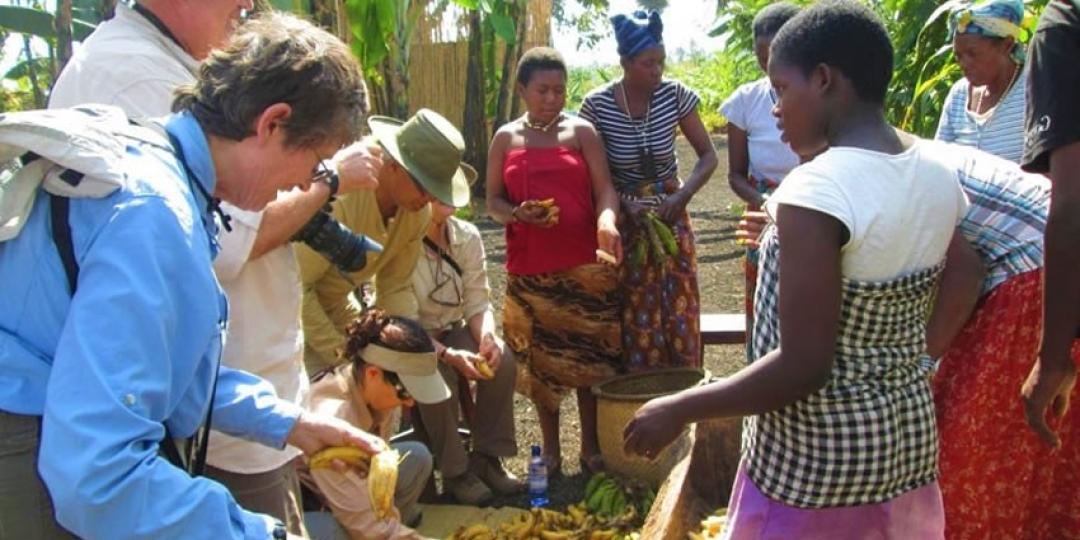Rural tourism is increasingly a topic of great interest in public discourse about tourism development in the southern African region. Because of its potential and ability to create jobs and address rural poverty, many countries have embarked on policy initiatives to promote tourism development in rural areas.
So said Dr Salifou Siddo, Chief Executive of SME TradeLinks, in response to UN Tourism – the new name of the World Tourism Organization (UNWTO) – opening applications for the 2024 edition of its ‘Best Tourism Villages’ initiative.
SME TradeLinks is a 100% black-owned, level 2 BEE compliant company that links SME entrepreneurs, financiers, public- and private-sector procurement managers, export agents, and experienced business mentors and coaches, to form a powerful platform that supports and accelerates the growth of South African SMEs. Its incubation programmes often attract township and peri-urban tourism-related small business operators.
Over the past three editions, UN Tourism received almost 600 applications from nearly 100 countries to join its Best Tourism Villages Network. Currently, the Network brings together 186 members globally, comprising 129 recognised as Best Tourism Villages and 57 villages taking part in the Upgrade Programme. Together, they represent 55 countries across five world regions.
UN Tourism Secretary-General, Zurab Pololikashvili, said: “Best Tourism Villages by UN Tourism recognises those rural destinations where tourism is being effectively embraced as an opportunity or as a tool for sustainable growth or for preserving unique cultural and natural heritage. For the 2024 edition, we look forward to seeing more examples of tourism as a force for good.”
Growing tourism for rural development
The ‘Best Tourism Villages by UN Tourism’ initiative, introduced in 2021, seeks to transform tourism into a catalyst for rural prosperity and wellbeing. The initiative takes a dual-pronged approach: valuing and preserving rural villages, their landscapes, cultural diversity, knowledge systems, and advancing innovative strategies aligned with the Sustainable Development Goals.
The initiative comprises three integral components:
- The ‘Best Tourism Villages by UN Tourism’ initiative recognises outstanding examples of rural tourism destinations with cultural and natural assets, that preserve and promote rural and community-based values, products and lifestyle and have a clear commitment to innovation and sustainability. Selection is based on an evaluation of their resources and initiatives in nine areas covering the three pillars of sustainable development, i.e., economic, social and environmental.
- The ‘Best Tourism Villages by UN Tourism Upgrade Programme’ benefits applicants that do not fully meet the criteria to obtain recognition. These villages receive support from UN Tourism and partners to address the gaps identified in the evaluation process.
- The ‘Best Tourism Villages by UN Tourism’ Network provides a space for exchanging experiences and good practices and opportunities. It includes representatives of the Best Tourism Village as well as from the Upgrade Programme and benefits from the contributions of experts, and public- and private-sector partners engaged in the promotion of tourism for rural development. Since its inception, the Best Tourism Villages Network has organised a series of training sessions and masterclasses, reaching hundreds of participants.
Siddo said the ‘Best Tourism Villages by UN Tourism’ Network was a great way for rural tourism destinations to collaborate, which was needed to develop the niche sector even further.
“It will be challenging for a single rural village, on its own and in isolation of other villages or towns, to become a viable tourism destination. However, by collaborating, villages could form clusters and design itineraries or routes that could offer a variety of exciting experiences to visitors. These routes or clusters can then be marketed more effectively to tourists. These initiatives could include assisting rural tourism operators to acquire skills, access funding or access to new markets.”
He added that benefits of collaboration included job creation, contribution to rural economic development, and helping rural areas develop and keep their populations instead of the exodus to cities.
“Tourism operators are also leading the charge in promoting tourism in rural areas with the creation of associations aiming to lobby governments and other stakeholders to pay more attention to rural tourism. SATOVITO, the South African Township & Village Tourism Association, is a case in point,” he said.
Siddo concluded that rural tourism held a lot of promise, but a lot of work such as infrastructure development, skills training, availability of funding, and market access facilitation would need to be done for this niche tourism sector to take off and flourish.
South African Minister of Tourism, Patricia de Lille, reiterated last week that township and village tourism had much to offer in terms of boosting the economy.
Applications welcome
UN Tourism Member States are invited to submit up to eight candidate villages through their National Tourism Administrations. Applications are open until April 24, and the selected villages will be announced in the third quarter of the year.
An external independent Advisory Board, comprising experts in various fields, evaluates applications based on nine areas:
- Cultural and Natural Resources;
- Promotion and Conservation of Cultural Resources;
- Economic Sustainability;
- Social Sustainability;
- Environmental Sustainability;
- Tourism Development and Value Chain Integration;
- Governance and Prioritisation of Tourism;
- Infrastructure and Connectivity, and;
- Health, Safety and Security.























